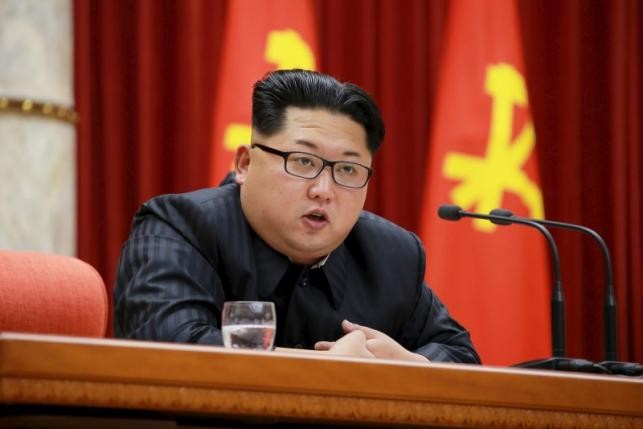
- Reuters reports: "China has barred a North Korean freighter from one of its ports and South Korea announced a crackdown on individuals and companies linked to Pyongyang's weapons program, stepping up sanctions against the isolated state...The ship is among 31 vessels blacklisted by China's Ministry of Transport after they were covered by harsher sanctions on North Korea that were approved by the U.N. Security Council last week. At least two other ships on the list of barred freighters are now sailing away after being anchored off Chinese ports, ship tracking data on the Reuters Eikon terminal showed on Tuesday."
Financial Times says that China insisted on Tuesday that new UN sanctions against North Korea agreed were not aimed at destabilising the country, as it aired its growing concerns over the "explosive" situation in its communist neighbour. In comments clearly aimed at the US, Wang Yi, foreign minister, used tough language to describe Beijing's fears as he warned of the consequences of provoking unrest. "China will not sit by and watch if there is fundamental destruction of stability on the Korean peninsula," said Mr Wang at a briefing held during the National People's Congress, the annual meeting of the country's rubber-stamp legislature. "China will not sit by and watch unwarranted damage to China's security interests," he added, urging all parties to "act with reason and care, and refrain from aggravating tensions". The unusually blunt Chinese remarks included "language that they use when their bottom line is pretty close to being reached", said Bonnie Glaser, a China expert at the Center for Strategic and International Studies in Washington.
- The New York Times reports: "When the aircraft carrier John C. Stennis and four other American warships sailed into the South China Sea last week for what were described as routine exercises, the message was clear: The United States is the dominant military power in the region and plans to keep it that way....The encounter, which passed without incident, was the latest episode in a wary standoff between the United States and China over two contested island chains known as the Paracels and the Spratlys. Since taking office three years ago, President Xi Jinping has used the isles to expand China's military footprint in the region, taking one step after another to build and equip outposts far from the Chinese mainland over protests from its neighbors and from Washington....The buildup has also challenged the military status quo in the Western Pacific since the end of World War II, bringing China closer to its goal of establishing a security buffer extending far from its coast — a dream of Chinese strategists since the Korean War."
- 2016-03-07 China vowed to peak carbon emissions by 2030. These researchers think it could already be there.
- 2016-03-06 China Seeks to Balance Stimulus and Reform
- 2016-03-04 China's 2016 Defense Budget to Slow in Line with Economy
- 2016-03-03 Five Things to Know About China’s ‘Two Sessions’
- 2016-03-02 China testing Obama as it expands its influence in Southeast Asia
- 2016-03-01 Exclusive: China to lay off five to six million workers, earmarks at least $23 billion
- 2016-02-29 China expects to lay off 1.8 million workers in coal, steel sectors
- 2016-02-28 Dodging Critics & Soothing Fears, China Meets G-20 Goals
- 2016-02-26 China talks up growth agenda at G20 amid lack of wider policy unity
- 2016-02-25 U.S., China Agree to Sanction North Korea on Nuclear Program
- The Washington Post Watch: A Chinese feminist's defiant message to the government that jailed her
- The New York Times South China Sea Buildup Brings Beijing Closer to Realizing Control
- Reuters China, South Korea step up sanctions on North Korea
- The Washington Post Watch: A Chinese feminist's defiant message to the government that jailed her
- The Wall Street Journal China's Exports Tumble Amid Broad Slowdown
- The Guardian Chinese magazine challenges government over censorship
- Reuters China says little to cheer in improved ties with 'two-faced' Japan
- The Wall Street Journal GM, Ford China Car Sales Decline in February
- The New York Times Asian Shares Fall on Weak Dollar, China Worries
- Bloomberg Business China's Export Slump Shows Growth Push Hinges on Local Demand
- Reuters China's foreign minister says not looking to supplant U.S.
- The Wall Street Journal Iron Ore Soars on Expectation of China Stimulus
- The Washington Post Why Trump's comparison of his wall to the Great Wall of China makes no sense
- The Seattle Times Trying to explain Trump in Beijing
- The New York Times: Sinosphere Chinese Publication, Censored by Government, Exposes Article's Removal
- The Wall Street Journal: China Real Time China Returns Donald Trump's Love-Hate
- The National Interest Can 'Quad Plus' Flex Its Muscles Against China?
- Brookings Institute China's transparency challenges
- The Wall Street Journal: China Real Time China's 'Bad Banks' Need a Lifeline, NPC Delegate Says
- The Diplomat China and the Iran Nuclear Deal
